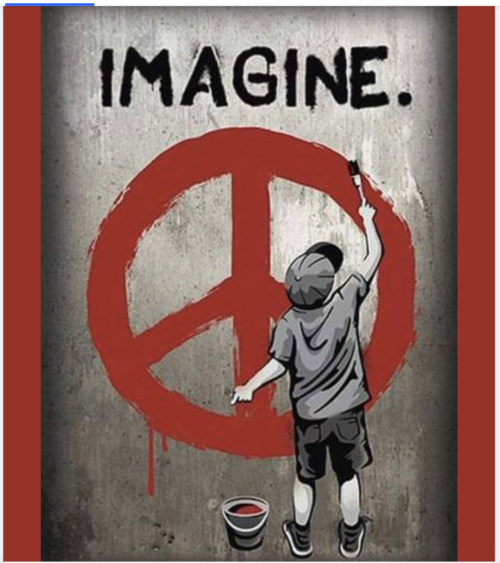“It could not have come at a better time,” Joseph Gerson, longtime peace and disarmament activist, responding to the Hibakusha as the winner of the 2024 Nobel Peace Prize, awarded for their activism directed at banning nuclear weapons.
 Gerson’ s comment contained the hope that the Hibakusha’s peace prize will reignite a focus on preventing a nuclear war.
Gerson’ s comment contained the hope that the Hibakusha’s peace prize will reignite a focus on preventing a nuclear war.
The Hibakusha is an organization of survivors of the 1945 atomic bombing of Hiroshima and Nagasaki. The Hibakusha have been tireless in their global efforts to halt the production of nuclear weapons to prevent another nuclear war.

Hibakusha’s “Peace Boat”which has traveled the globe to educate countries about the threat of a nuclear war, Costa Rica, June 2024
Accepting the award, Toshiyaki Mimaki choked up, speaking through tears, referencing Gaza: “The images of children covered in blood, held by their parents reminds me of Japan 80 years ago.”

Toshiyaki Mimaki’s acceptance speech for the Nobel, when he broke down over the genocide in Gaza, comparing it to Hiroshima in 1945.
In an interview on “Democracy Now,” Gerson praised the Hibakusha:
The courage of these people is staggering. . . the descriptions of who suffered burns, saw people with their eyeballs hanging out, ghosts, the whole city destroyed in an instant. . . . these people literally survived hell. And they turned their experiences, their suffering, into what Wilfred Burchett, the first Western journalist to go into Hiroshima, later described as the most important force for the abolition of nuclear weapons among humanity.
The Hibakusha are not alone in sounding the alarm over the threat of a nuclear war. Prominent political thinkers, like Scott Ritter, former Marine Intelligence Officer, Jeffrey Sachs, economist, and John Mearsheimer, political scientist, have been making the rounds on podcasts, speaking with urgency about their fears of the US creeping into a nuclear war with Russia over Ukraine.

Scott Ritter (R) on the podcast, “Judging Freedom” where he laid out the possibility of a nuclear war with Russia
These keen foreign affairs experts cite America and NATO’s consideration to provide Ukraine with long range missiles, which Putin cites as his red line, insisting if they are used to strike inside Russia, he will retaliate with nuclear weapons. It is no exaggeration to say, if this happens, we are in WW lll and the end of life on this planet, or 12,000 years of civilization extinguished in few hours.
On another dangerous front, Netanyahu is trying to draw the US into war with Iran, where the use of nuclear weapons is another scary possibility.
Annie Jacobson, former national security reporter and author of “Nuclear War: A Scenario,” describes how easily a nuclear war can start:
It doesn’t take but one weapon to set off a chain reaction to unleash the current arsenal, which is forward deployed in launch-on-warning positions and could be fired in as little as a minute—15 minutes for the submarines. There are enough weapons in those positions right now to bring on a nuclear winter that would kill an estimated 5 billion people.
Jacobson refutes the common myth that the US can shoot down an incoming nuclear missile, claiming that the inceptors are only 50% effective.
To acquaint yourself with the impact of a nuclear bomb, watch Alain Resnais’ award-winning 1959 French film, “Hiroshima Mon Amour,” available on Amazon Prime.
“Hiroshima Mon Amour” was filmed in Hiroshima. The plot revolves around an affair between a French actress, playing a nurse in a film about the bombing of Hiroshima, and a Japanese architect, whose family was killed in the Hiroshima bombing, while he was away on Army duty.
The film opens with footage of the actual bombing where victims are seen with badly burned skin, in states of shock. The French actress is shaken by these images, while her Japanese lover tries to brush them off, leaving the viewer to question, “How do we store horrific events? Are they repressed or do they become lessons for future living.”
Most Americans have become unwitting victims of messaging which underplays or ignores the threat of a nuclear war. But we can’t afford this indifference. If our leaders are too complacent about a nuclear war, it’s up to us to put pressure through anti-war actions, joining with peace groups, like Greenpeace, The Clamshell Alliance, or Friends of the Earth.
To quote John Lennon, “Give peace a chance”—before it’s too late.




